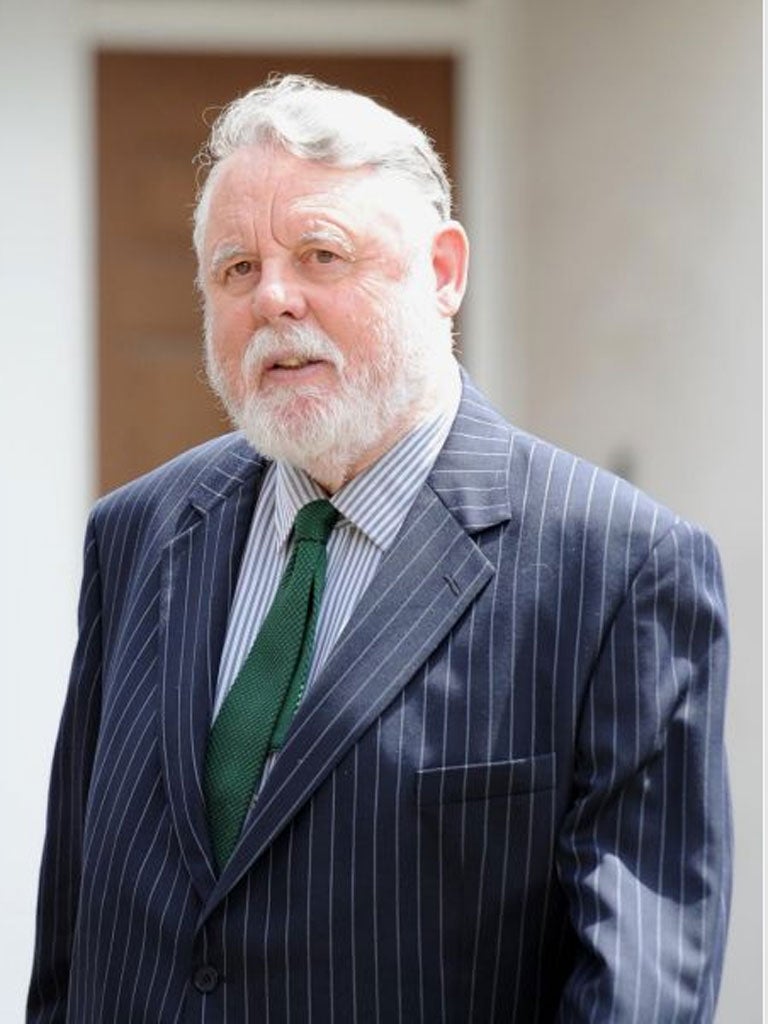Twenty years after he was freed, Terry Waite makes his peace with Hezbollah
Former hostage meets captors during return to Lebanon

Your support helps us to tell the story
From reproductive rights to climate change to Big Tech, The Independent is on the ground when the story is developing. Whether it's investigating the financials of Elon Musk's pro-Trump PAC or producing our latest documentary, 'The A Word', which shines a light on the American women fighting for reproductive rights, we know how important it is to parse out the facts from the messaging.
At such a critical moment in US history, we need reporters on the ground. Your donation allows us to keep sending journalists to speak to both sides of the story.
The Independent is trusted by Americans across the entire political spectrum. And unlike many other quality news outlets, we choose not to lock Americans out of our reporting and analysis with paywalls. We believe quality journalism should be available to everyone, paid for by those who can afford it.
Your support makes all the difference.For a man used to spending time in solitary confinement, Terry Waite could be forgiven for feeling very alone as he was shuttled to a secret location in Beirut for talks with the group thought to be responsible for his kidnapping 25 years ago.
When the author and humanitarian last visited the city's southern suburbs he was forced to spend 1,760 days locked in a cramped cell, being subjected to mock executions and beatings while chained to a radiator.
But under the cover of darkness on Monday last week, he returned to Lebanon offering forgiveness and reconciliation to his captors, a quarter of a century after he was kidnapped and tortured by associates of the militant group Hezbollah.
Mr Waite, now 73, held talks with Ammar Moussawi, Hezbollah's senior foreign affairs official. It was his first time in the area since 1991.
At about 10pm he was taken to a secret location in the city's suburbs, with the meeting held at about 11pm. He said the rendezvous had been confirmed only at the last moment, which was "often how Hezbollah works".
"My first reason for the visit is to say the past is the past," Mr Waite told Mr Moussawi, surrounded by Hezbollah flags. He added: "Let us leave it."
During the meeting Mr Moussawi denied Hezbollah was responsible for his kidnapping.
Mr Waite travelled to Lebanon in 1987 as the special envoy of the then Archbishop of Canterbury, Robert Runcie, hoping to secure the release of the British journalist John McCarthy and other Western captives.
But he was accused of being an agent acting for the CIA and was himself kidnapped. In the first year of his captivity Mr Waite was kept in solitary confinement, chained to a radiator for 23 hours a day.
He communicated with other hostages in the cell next door by tapping on the wall using a rudimentary code. Mr Waite conceded that last week's meeting was not without "a degree of risk", but that he had to "trust" in Hezbollah.
The powerful political and military Shia Muslim part of Lebanon's government is regarded by some in the West as a terrorist group. The US has claimed its political wing is a terrorist organisation as well as its military arm.
Speaking about his latest visit, which was first reported by the Sunday Telegraph, Mr Waite said there would be accusations that he was consorting with terrorists.
"I would remind such accusers that Hezbollah has grown into a fully-fledged political party with seats in Lebanon's parliament and is now in a unique position to work for peace in the region," he said.
"I met with them quite prepared to put my own sufferings in the past. The only way forward is by the pathway of forgiveness, which is a difficult and dangerous road."
His reconciliation was an attempt to highlight the plight of Christians who have been forced to flee their homeland by the civil war in Syria. Hezbollah has forged an unlikely alliance with the Free Patriotic Movement, Lebanon's largest Christian party.
Mr Waite asked Hezbollah to provide assistance and aid to Christian refugees in the weeks before Christmas. He said: "It is my view that Hezbollah can do itself a great deal of good at Christmas, the Christian festival, by perhaps doing something to give some support to the refugees who are in this country."
Join our commenting forum
Join thought-provoking conversations, follow other Independent readers and see their replies
Comments